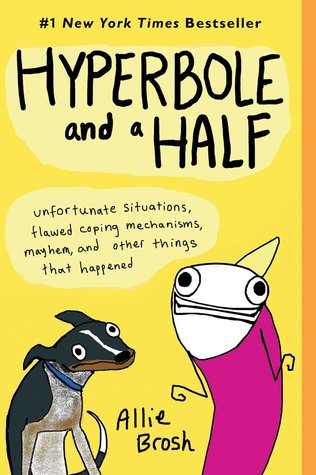More on this book
Community
Kindle Notes & Highlights
For me, motivation is this horrible, scary game where I try to make myself do something while I actively avoid doing it. If I win, I have to do something I don’t want to do. If I lose, I’m one step closer to ruining my entire life. And I never know whether I’m going to win or lose until the last second.
I’ve experienced enough failure at this point to become suspicious of where I’m going and what’s going to happen when I get there. And for the last helpless moments of the journey, I’m fully aware and terrified.
A more troubling matter is the day-to-day activities that don’t have massive consequences when I neglect to do them. I haven’t figured out how to solve the problem in a normal way,
But trying to use willpower to overcome the apathetic sort of sadness that accompanies depression is like a person with no arms trying to punch themselves until their hands grow back. A fundamental component of the plan is missing and it isn’t going to work.
If my life was a movie, the turning point of my depression would have been inspirational and meaningful. It would have involved wisdom-filled epiphanies about discovering my true self and I would conquer my demons and go on to live out the rest of my life in happiness. Instead, my turning point mostly hinged upon the fact that I had rented some movies and then I didn’t return them for too long.
The beginning of my depression had been nothing but feelings, so the emotional deadening that followed was a welcome relief.
I had always viewed feelings as a weakness—annoying obstacles on my quest for total power over myself.
there’s a huge difference between not giving a fuck and not being able to give a fuck.
It’s weird for people who still have feelings to be around depressed people. They try to help you have feelings again so things can go back to normal, and it’s frustrating for them when that doesn’t happen. From their perspective, it seems like there has got to be some untapped source of happiness within you that you’ve simply lost track of, and if you could just see how beautiful things are . . .
At first, I’d try to explain that it’s not really negativity or sadness anymore, it’s more just this detached, meaningless fog where you can’t feel anything about anything—even the things you love, even fun things—and you’re horribly bored and lonely, but since you’ve lost your ability to connect with any of the things that would normally make you feel less bored and lonely, you’re stuck in the boring, lonely, meaningless void without anything to distract you from how boring, lonely, and meaningless it is.
But people want to help. So they try harder to make you feel hopeful and positive about the situation. You explain it again, hoping they’ll try a less hope-centric approach, but re-explaining your total inability to experience joy inevitably sounds kind of negative, like maybe you WANT to be depressed. So the positivity starts coming out in a spray—a giant, desperate happiness sprinkler pointed directly at your face. And it keeps going like that until you’re having this weird argument where you’re trying to convince the person that you are far too hopeless for hope so that they’ll give up on
...more
And that’s the most frustrating thing about depression. It isn’t always something you can fight back against with hope. It isn’t even something—it’s nothing. And you can’t combat nothing. You can’t fill it up. You can’t cover it. It’s just there, pulling the meaning out of everything. That being the case, all the hopeful, proactive solutions start to sound completely insane in contrast to the scope of the problem.
It’s a strange moment when you realize that you don’t want to be alive anymore. If I had feelings, I’m sure I would have felt surprised. I have spent the vast majority of my life actively attempting to survive.
Soon afterward, I discovered that there’s no tactful or comfortable way to inform other people that you might be suicidal. And there’s definitely no way to ask for help casually.
I was also extremely ill-prepared for the position of comforting people. The things that seemed reassuring to me at the time weren’t necessarily comforting for others.
The absurdity of working so hard to continue doing something you don’t like can be overwhelming. And the longer it takes to feel different, the more it starts to seem like everything might actually be hopeless bullshit.
I had not been able to care for a very long time, and when I finally started being able to care about things again, I HATED them. But hatred is technically a feeling, and my brain latched on to it like a child learning a new word.
But my mother maintained her composure very well—until a twig snapped, at which point she whirled around shrieking, “WE HAVE A DOG!” As if Murphy’s presence were enough to deter a homicidal psychopath with a chainsaw.
I like to imagine that it found the duck pond and chose to trade its violent lifestyle for one of gentle paddling and feasting on bread crumbs. But that’s probably not what happened.
When something seems like it might be surprising and then isn’t, I feel tricked.


